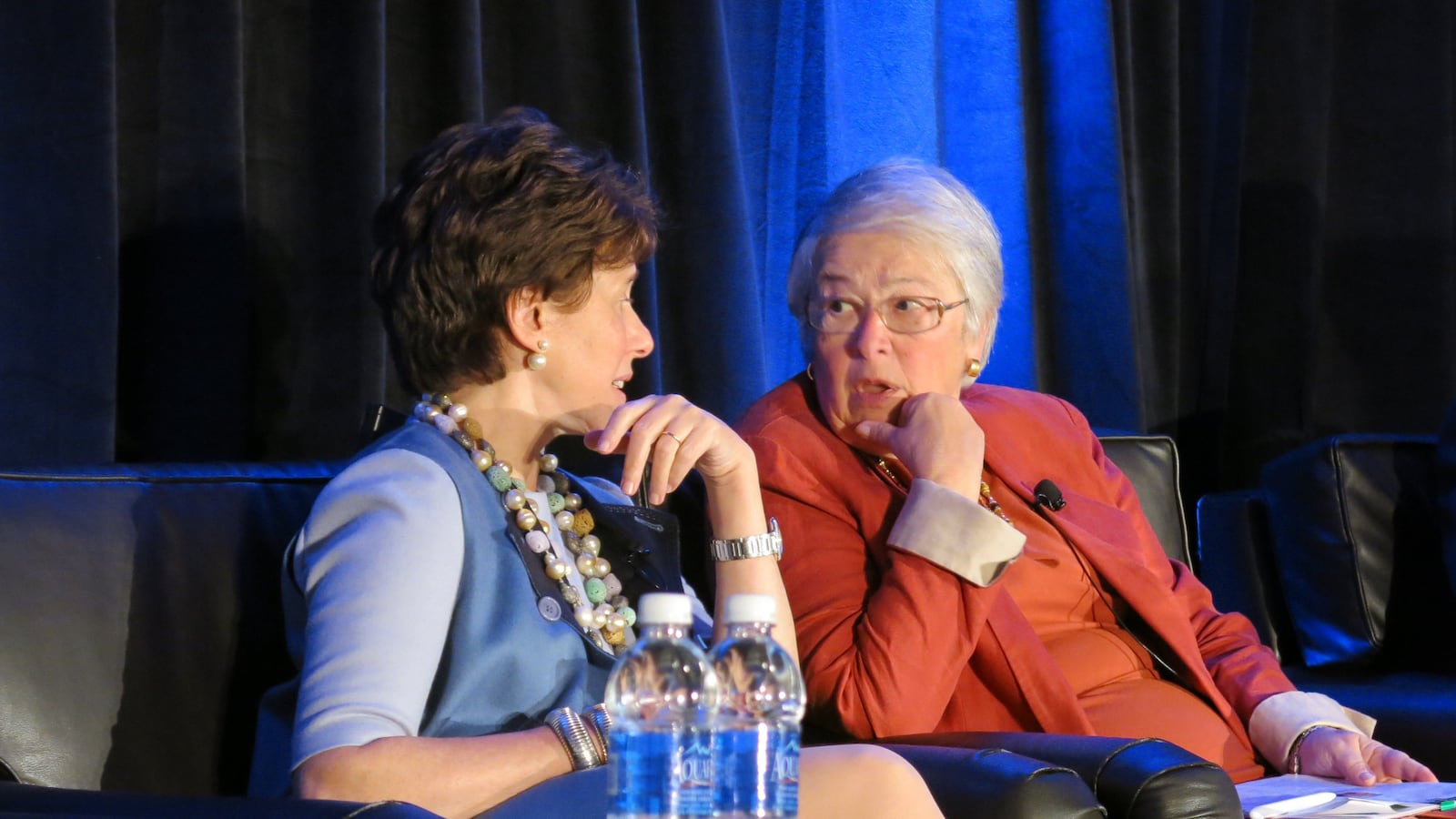When state Board of Regents Chancellor Merryl Tisch visited Automotive High School three years ago, she said she was disturbed by what she saw: disengaged teachers, uninspiring lessons, disconnected students wandering the hallways.
“These were children doomed to educational disaster,” she recalled in an interview Thursday. (Back in 2011, the visit inspired Tisch to tell a newspaper that the city had “warehoused” students in schools like Automotive, eliciting a testy retort from the mayor.)
Earlier this month, Tisch returned to the Greenpoint, Brooklyn campus to check its progress — an “out of time” school, the state had ordered it to make drastic changes this year. What she found impressed her.
Now, students walked calmly down the hallways, where the principal greeted them by name, Tisch said. The school’s namesake car-repair training program had been reinvigorated, and the school’s academic data showed progress, she said.
“I saw shoots of green,” said Tisch, who has called for more forceful state interventions in struggling schools like Automotive. “They’re starting to have some life back in that building.”
The chancellor’s remarks offer some welcome recognition for the work of Caterina Lafergola-Stanczuk, who became principal of Automotive just before Tisch made her first visit and is now under intense pressure to show improvements. They also are good news for the city, whose strategy to overhaul its lowest-performing schools by flooding them with extra supports has faced scrutiny by Tisch and others.
The state is currently reviewing plans the city submitted for 250 low-ranked schools, even as it considers adding nine others to its more serious out-of-time list. Tisch declined to comment on the plans, and she did not explicitly attribute Automotive’s progress to the city’s new turnaround program. However, her positive take on Automotive suggests she is at least open to the city’s idea that floundering schools can be revamped with strong leadership and instructional improvements and without more extreme shakeups.
“The state is keeping an open mind to look at these plans,” Tisch said, though she added, “one thing that nobody wants is to see a plan that is destined to fail.”
In March, state officials designated Automotive and another long-struggling Brooklyn high school, Boys and Girls, as out of time and gave the city a handful of intervention options. The city chose to put them under an “alternate governance structure,” essentially creating a mini-district with its own superintendent for a small group of troubled schools.
But the state was not satisfied with the city’s initial plans for those two schools, according to a November letter from then-State Education Commissioner John King to the city. The state said the plans needed a way to replace ineffective teachers or administrators, longer school days, summer-time teacher training, and a freeze on sending the schools new students mid-year. The city added those elements into final plans it submitted in December, which the state has now approved, according to a city spokeswoman.
Amid this back-and-forth, Tisch proposed in a letter she co-wrote last month to Gov. Andrew Cuomo that chronically under-performing schools be closed and or put under them control of turnaround experts. And in November, she said that if the city’s restaffing plan for Automotive and Boys and Girls did not lead to a significant shakeup, the state would consider shutting them down.
“If at the end of the day, all we get from this is two teachers who were going to retire anyhow retiring, we’re not going to have much change in that school building,” she said in a radio interview. “If we do not see movement on these schools, these lowest-performing schools, on their ability to retool their workforce by the spring, we will move to close them,” she added.
During a town hall meeting in Bushwick last week, city schools Chancellor Carmen Fariña suggested that state officials still may not be totally sold on the city’s struggling schools turnaround plan. When an elected official in the audience asked about the plan, Fariña noted how the previous administration often shuttered troubled schools, an option the state has endorsed for out-of-time schools.
“We decided to take a very different tack, which I’m still fighting the state, because this was an unapproved method,” Fariña said. “We’re saying we want to give all these schools a second chance.”
State officials would not comment on Fariña’s remarks. City education department spokeswoman Devora Kaye later added that Fariña works closely with the state on struggling schools.
“She is grateful for their support and partnership,” Kaye said.
In the three years since Lafergola-Stanczuk took over Automotive, just weeks before Tisch’s first visit, the school’s academic measures have seesawed.
For instance, the four-year graduation rate spiked to 64 percent her first year, fell to 45 percent the following year, and inched back up to 49 percent last year. (The state toughened graduation requirements during that period.) Meanwhile, the percentage of students earning 10 or more credits in each grade went down Lafergola-Stanczuk’s first year but rebounded last year.
In an interview, Lafergola-Stanczuk cited last year’s academic gains but said the school still has a long way to go. But it has made dramatic if harder-to-quantify progress in terms of student safety and morale, she said. Today, the attendance rate is up, while suspensions are down 66 percent since 2011.
Clear rules and lots of personal attention helped improve student behavior, while training and coaching provided by the city’s turnaround program has started to boost the quality of teaching, Lafergola-Stanczuk said. That Tisch witnessed some of those changes was one of her most gratifying experiences at Automotive, the principal added.
Now, she went on, “I just hope that they give us the time to do the work we need to do.”

